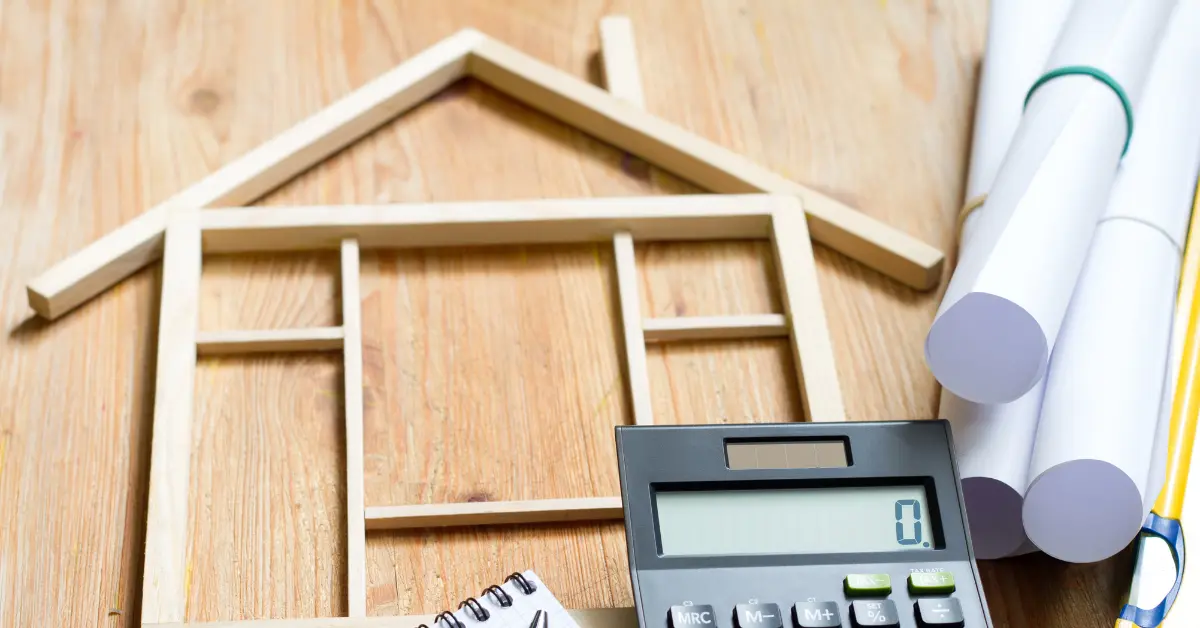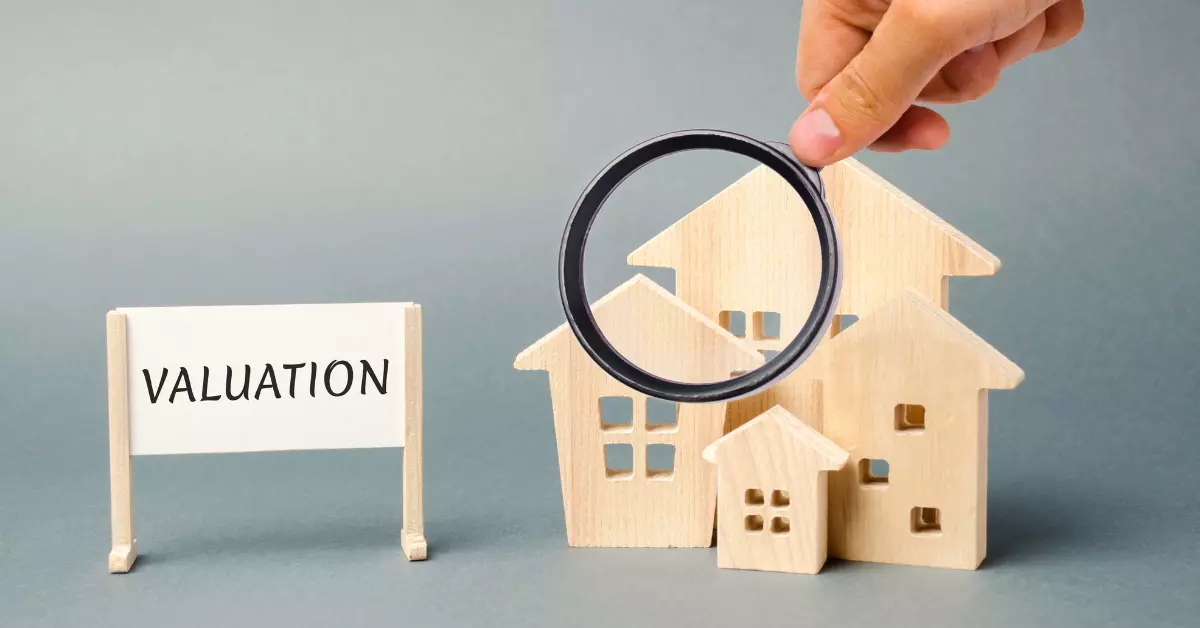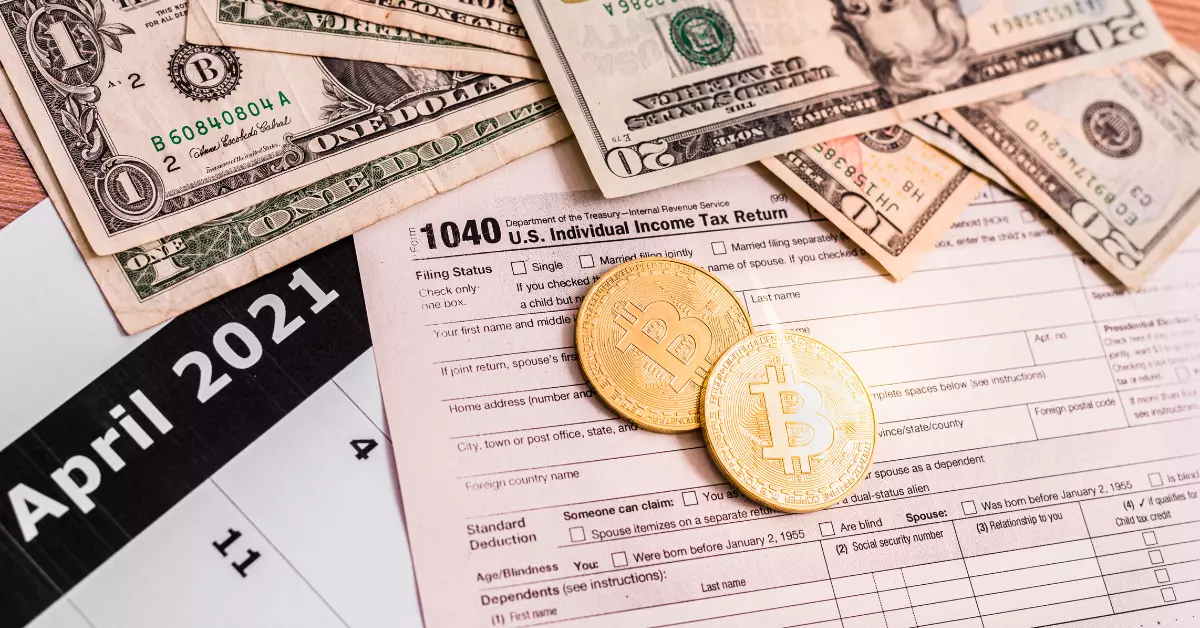Why Would a Landlord Want a Valuation? – Rental Awareness
A landlord would want a valuation to determine the current value of their property and to understand its potential rental income. A valuation report can provide a comprehensive evaluation of the property’s market value, taking into account location, condition, and market trends.
why would a landlord want a valuation? This can help the landlord to make informed decisions about rental prices, potential renovations, and potential sales of the property.
Moreover, if a landlord is planning to refinance or sell their property, a valuation report can provide valuable information for lenders, buyers, and real estate agents.

What Is A Landlord Valuation?
As a rental property owner, it is important to understand the value of your property in the current market. A landlord valuation is a report that provides an estimated value of a rental property, based on current market conditions, recent sales and rentals in the area, and the property’s condition and features.
The Term Landlord Valuation And Explain Its Importance For Rental Property Owners
A landlord valuation is a report that estimates the value of a rental property based on market factors. It is important for rental property owners for several reasons:
- To understand the current value of the property to ensure it is priced appropriately when put on the market for rent or sale.
- To determine if refinancing or taking out a loan using the property as collateral is a viable option.
- To settle a dispute in case of divorce or inheritance.
- To claim the correct amount of insurance for the property.
Give Examples Of When And Why A Landlord Would Need A Valuation
There are several instances when a landlord would require a valuation. Here are some examples:
- When considering placing the property on the market for rent or sale, a landlord needs to understand the current value of the property to ensure it is priced competitively.
- If a landlord wishes to refinance the property or take out a loan using it as collateral, a landlord valuation can help determine the current value to ensure they get the best terms possible.
- In the event of a dispute, such as a divorce or inheritance, a landlord valuation can provide an objective opinion of the property’s worth to facilitate an equitable solution.
- A landlord valuation is also important when renewing insurance for a property. It ensures that the value of the property is accurately represented, and that insurance coverage is adequate.
Benefits Of A Landlord Valuation
If you’re a landlord, you’ve probably put a lot of work into maintaining your rental properties. However, have you ever considered getting a rental property valuation? A valuation may seem like an unnecessary additional expense, but getting one can actually be very beneficial.
Here are a few points highlighting some of those benefits:

Knowing your property’s worth
A landlord valuation can help you determine the current market value of your property. This can help you make estimates of your rental income and make informed financial decisions.
You can also use the valuation to set the right rental prices to ensure you’re maximizing your rental income.
Mortgage Refinancing
If you’re considering refinancing your mortgage or taking out a new one, having a recent rental property valuation can be very helpful in the process.
By knowing your property’s current value, you could be eligible for lower interest rates on your mortgage payments.
Insurance purposes
Landlord valuation can also help you determine the right amount of coverage in case of damage to your rental property.
By knowing your property’s current value, you can make sure you’re adequately insured to cover any potential losses.
Selling properties
If you’re planning to sell your rental property, a valuation report can provide you the necessary information about its current worth. This can help you set a reasonable asking price and increase the chances of a quick sale.
Tax purposes
Having your property valued can also help you in your tax return filing. By knowing the current value of your property, you can optimize your tax filing and reduce your property taxes.
Understanding The Valuation Process
Walk Through The Steps Of A Landlord Property Valuation
When a landlord wants to know the current value of their property, they need to go through the process of a property valuation. Here are the steps a property valuation generally involves:
Property inspection
A representative from an appraisal company will inspect the landlord’s property to assess its condition and identify any repairs or upgrades that could affect its value.
Market analysis
The appraiser will research the local real estate market to get an idea of the property’s current value based on comparable sales in the area.
Valuation report
Based on the property inspection and market analysis, the appraiser will prepare a report that includes an estimated value for the property.
Clarify What Factors Are Considered In The Valuation Process
When a property is being valued, several factors are considered:

Location
The appraiser will evaluate the property’s location, its proximity to public transport, shopping precincts, and schools.
Condition
The overall condition of the property, as well as any maintenance and repairs, will significantly affect the property’s value.
Size
The size of the property and the land it sits on can affect its value.
Comparable sales
Recent sales prices of similar properties in the area.
The appraiser can use one of three methods to determine the property’s value:
Sales comparison approach
This method involves comparing the property to recently sold homes in the area with similar features, such as the number of bedrooms, bathrooms, and square footage.
Income approach
This method considers how much rental income the property can generate and its profitability and uses that to estimate the property’s value.
Cost approach
This method looks at the cost of rebuilding the property from scratch, including land cost, labor, and materials.
Each method is most typically used based on the type of property being valued, the location, and the market variables present at the time.
Why Is It Important For Landlords To Have Their Property Valuated?
As a landlord, it’s important to know your property’s market value. Having a clear understanding of your property’s worth can help you make informed decisions about your investment.
One way to determine this value is through a landlord valuation. In this blog post, we will explain why a landlord valuation is necessary.
Landlords must have their property evaluated for many reasons. Here’s why.
To Obtain A Clear Understanding Of Your Property’S Market Value
A landlord valuation can help you get a precise picture of how much your property is worth. It’s essential for landlords to have a clear understanding of the market value of their investment property.
This way, landlords can make informed decisions when it comes to the property’s assets and taxes.
- The value of your investment can change year over year.
- Knowing the market value of your property can help you determine the rent price for your tenants.

To Attract Potential Buyers Or Tenants
If you plan to sell your property in the near future, you must have a landlord valuation done. A landlord valuation can provide proof of your property’s value, helping you obtain a higher selling price.
If you plan to rent out your property, a landlord valuation can help you set rental prices that are competitive but reasonable.
- A landlord valuation can provide evidence of your property’s value, i.e., essential to attracting potential buyers or tenants.
- Your tenants will also have more trust in the rent prices you share if it is backed by a professional third-party valuation.
To Determine The Property’S Insurance And Taxation Value
Insurance and taxation are critical factors for landlords. A precise insurance premium calculation and taxation process require a clear and accurate understanding of your property’s value. Otherwise, you may end up vastly overpaying for insurance and taxes.
- Getting your property evaluated can help you in claiming the most suitable insurance plan.
- It can also help you to file for tax deductions that apply to your investment property.
Loan And Mortgage Financing
Lastly, a landlord valuation is essential when it comes to property investment loans. Financial institutions require a clear valuation of your property as collateral for the loan.
If you need a mortgage or any other type of loan that is backed by the property, this valuation becomes all the more important.
- The qualified third-party valuation provides the lender with enough confidence to provide a mortgage to the landlord.
Rental Income Generation
As a landlord, understanding the value of your property is crucial, and one of the critical elements that can impact it is the generation of rental income. The rental income generation of a property plays a vital role in determining its value.
Below, we will discuss how rental income is calculated, how rental agreements can impact the value of a property, and how it can affect the property’s valuation.

The Impact Of Rental Income Generation On Landlord Property Valuation
Rental income generation establishes the value of a property. The higher the rental income a property generates, the higher its value. Here are some ways rental income generation impacts the landlord property valuation:
- Rental income generation is one of the most important factors when it comes to property valuation. The rental income of a property contributes significantly to its overall value.
- A rental property’s gross income is calculated by adding all the rental income collected and subtracting the rental expenses. This formula determines the amount of rental income a property generates.
- Rental agreements play a crucial role in determining the rental income. For instance, long-term rental agreements with reliable tenants can increase a property’s rental income, leading to a higher valuation.
- High vacancy rates can reduce the rental income of a property, lowering the property’s valuation.
- Renovations and improvements to rental properties can increase their rental income, which directly impacts the property’s value and overall worth.
It’s crucial to note that rental income isn’t the only factor that determines a property’s value. The location, market trends, size, and condition of property also play a significant role in its valuation. As a landlord, it’s important to keep all these factors in mind when seeking a property valuation.
Taxation
As a landlord, you might think that valuations are just for buyers and sellers. However, property valuations can provide valuable insights into your property’s true value for taxation purposes. Here’s how landlord property valuations can help with property taxation issues.
How Landlord Property Valuations Can Help With Property Taxation Issues
Valuations can be excellent tools in helping landlords with property taxation issues. Here are a few key benefits of property valuations for landlords when it comes to taxation:
- Calculating property taxes that are proportional to the property value. One of the most critical purposes of property valuation from a taxation point of view is to assist in calculating property taxes. By working out the current market value of your property, the local authority can calculate the correct property taxes amount for your property’s value. The correct valuation of your property enables local authorities to charge property taxation in a way proportional to the properties’ value.
- Minimizing the risk of overpaying property taxes. Not having an accurate valuation can lead to overpayment of property taxes. If tax is charged on a higher rate than the actual property value, you may unknowingly end up overpaying the tax amount. An accurate valuation can help reduce any tax overpayments.
- Assessment of the tax implications of a property transaction. As a landlord, you need to consider the tax implications of selling or buying a property. A valuation can provide a clear understanding of the tax implications of such transactions.
Investment Purposes
In today’s challenging economic climate, every landlord must make informed choices to ensure they maximize the income potential of their properties.
One way to achieve this goal is by obtaining a valuation. A property valuation is an appraisal of the potential worth of a rental property.
There are several reasons why a landlord may want to obtain a valuation, and one of those reasons is for investment purposes.

Elaborate On How Valuations Can Help Landlords Invest In Rental Property
Property valuations enable landlords to make informed decisions when investing in rental property. The detailed valuation report allows landlords to ascertain the property’s value and its potential to generate income.
By seeking a valuation, landlords gain crucial insights into the market’s general direction that helps them determine if buying or selling more properties is worthwhile.
The report will typically include:
- An assessment of the property’s current value.
- Information on similar properties in the area.
- Insights into the rental value it can generate.
- The potential for capital growth.
Discuss How The Results Of A Valuation Can Be Used To Buy Or Sell More Property
A valuation can be a valuable tool when it comes to buying or selling property. It enables landlords and investors to make informed decisions. Here are some ways the results can be used for future property investments:
- The valuation report provides a comprehensive analysis of the property, giving landlords an edge during negotiations.
- Knowledge of the potential rental income allows landlords to understand returns on investment.
- The report highlights potential areas for improvement in the property, which can increase its value.
- Armed with the valuation report, landlords can decide to part with the property if selling it makes financial sense based on the current market conditions.
Getting a property valuation for investment purposes can be a smart move for landlords. It enables them to make well-informed decisions for the future of their property investments.
With the detailed information provided in the valuation report, landlords can buy or sell more properties efficiently, maximizing their revenue potential.
Frequently Asked Questions For Why Would A Landlord Want A Valuation?
Why Would A Landlord Need A Valuation?
A landlord would want a valuation to determine rental rates, property taxes, and insurance premiums.
How Often Should A Landlord Get A Property Valuation?
It is typically recommended that a landlord gets a property valuation every 3-5 years.
How Is Property Value Determined For A Landlord?
Property value is determined by factors such as location, size, condition, and rental income potential.
Can A Landlord Use A Previous Valuation When Purchasing Insurance?
It is possible to use a previous valuation when purchasing insurance, but it is recommended to get a new valuation for accuracy.
Conclusion
Dive into the realm of smart property investments! Understanding your property’s worth is more than a number, it’s a roadmap to success.
As a landlord, valuations arm you with crucial insight, guiding savvy decisions, boosting returns, and helping you navigate future market fluctuations with confidence.
Reference
https://www.nyc.gov/assets/buildings/pdf/tenants_rights.pdf